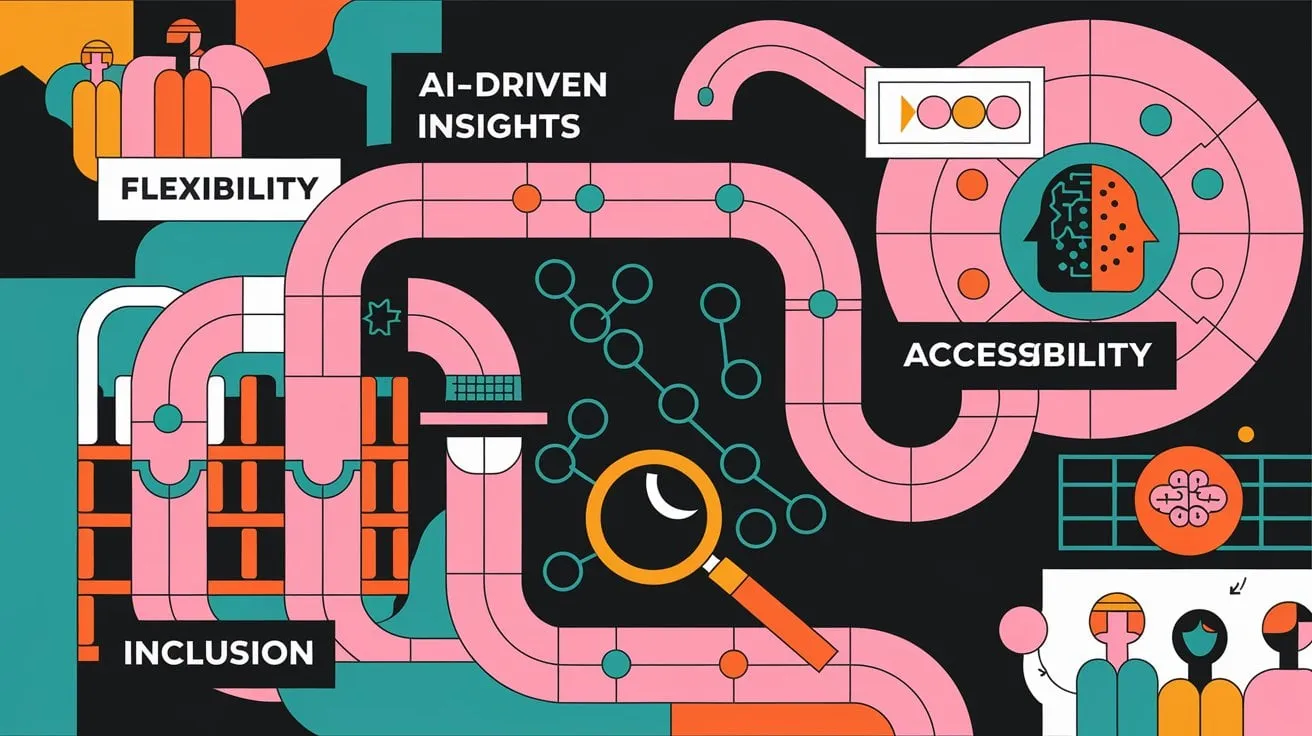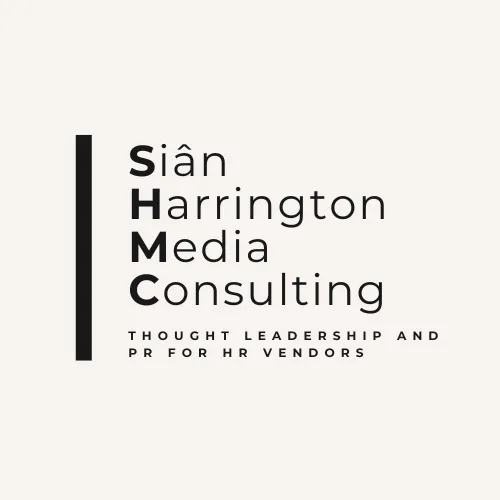Top Mistakes HR Directors Urge Tech Vendors to Avoid: Insights from ex HRD Martin Kirke

Gain key insights into what HR directors really want from technology providers, from flexible solutions and AI-powered data accuracy to empowering diversity and inclusion. Learn how to align your HR tech with the evolving needs of today’s workforce
The HR tech landscape is booming with investment in the sector continuing to surge. A 2024 Gartner survey highlighted that HR technology was a top priority for HR leaders this year and it’s easy to see why. The ongoing transformation of how we work has created a demand for tools that not only solve today's challenges but also anticipate tomorrow’s needs.
To get a better understanding of what HR directors are truly looking for from technology providers Siân Harrington, founder of Sian Harrington Media Consulting and editorial director of The People Space, spoke to Martin Kirke, a seasoned HR director with a wealth of experience across various sectors. Martin is a non-executive director, coach and advises HR tech companies and investors. He’s been in the trenches, leading HR teams through both public and private sectors. His insights offer a clear-eyed view of what HR leaders need from their technology today.
Here are the key lessons learned from our conversation:
1. Flexible solutions: Adaptability is key
The first thing Martin emphasisea is the critical need for flexibility in HR tech solutions. Over the past few years, HR teams have been faced with unprecedented challenges – from managing furloughed workers to navigating the complexities of remote work. The rigid systems of the past simply don’t cut it anymore. What HR directors need are solutions that can be deployed quickly and reconfigured as circumstances change.
“We need tech that can pivot as fast as our workforce does,” Martin says. “In times of crisis or rapid change the ability to quickly integrate new data and adjust configurations is essential.”
2. Empowering data mining: Democratising data access
Data is the lifeblood of effective HR management but too often only a few people within the organisation know how to extract and use it. Martin points out the frustration that comes with relying on a single “data expert" to get the information needed. The solution? Simple, user-friendly tools that allow the entire HR team to mine data effectively, much like how retailers analyse customer behaviour.
“We’re looking for tools that make data accessible and actionable for everyone on the team, not just the experts,” Martin stresses. “This kind of empowerment is crucial for timely decision-making.”
3. AI for accuracy: A focus on data integrity
AI has been a game-changer in HR, particularly when it comes to improving data accuracy. Martin highlights how AI can help spot inconsistencies and correct errors in employee data, which remains a significant pain point for many organisations. Imagine an AI that flags improbable data combinations, like an employee who appears to have been on a graduate training scheme since the 1980s – tools like this are becoming indispensable.
“Accuracy in data isn’t just a nice-to-have – it’s fundamental to every other function in HR,” Martin notes. “AI can play a critical role in maintaining this integrity.”
4. Skills analysis: Unlocking hidden potential
Another area where technology can make a significant impact is in skills analysis. With skills shortages in many industries the ability to redeploy employees based on a deeper understanding of their skill sets – beyond just what’s on their CV – is invaluable. Martin mentions the importance of tools that can identify these underlying skills and guide training efforts accordingly.
“Tech that helps us understand the full range of our employees’ skills allows us to be more agile and responsive,” he says. “It’s not just about filling roles, it’s about optimising the talent we already have.”
5. Seamless integration of contingent and permanent workers
The modern workforce is diverse, with employees, contractors and freelancers all contributing to the mix. However, integrating data from these different groups has been a persistent challenge. Martin underscores the need for systems that can seamlessly bring together data from various sources, ensuring that all workers – regardless of their employment status – are included in crucial processes like risk assessments.
“Our systems need to be as integrated as our workforce is,” Martin explains. “Whether it’s for compliance, safety, or simply operational efficiency, the ability to merge data from different worker types is critical.”
6. Bitesize L&D: The future of learning
Learning and development have undergone a transformation, particularly with the rise of remote work. Martin points out that traditional, lengthy training sessions are being replaced by shorter, more digestible modules that fit into the flow of work. Coupled with online learning communities and curated content this approach is proving to be more effective and engaging.
“Learning needs to be as dynamic and flexible as the rest of our work,” Martin saiys. “Shorter, more frequent training sessions that can be immediately applied are where we’re seeing real value.”
7. Enhancing online collaboration
With remote and hybrid work becoming the norm, investment in collaboration tools has skyrocketed. Martin shares how some organisations are even allowing employees to relocate anywhere, thanks to robust digital collaboration platforms. These tools not only facilitate communication but also support the retention and attraction of talent by offering greater flexibility.
“Collaboration tools aren’t just about keeping in touch—they’re about keeping teams connected and cohesive, no matter where they are,” Martin remarked.
8. Promoting diversity and inclusion: Tech as an enabler
Diversity and inclusion have rightly taken centre stage in HR priorities. Martin sees technology playing a crucial role here, particularly through tools that support employee networks and mentoring programmes. These solutions can help foster a more inclusive environment by connecting employees across different demographics and supporting their growth.
“Tech that helps us build stronger, more inclusive networks within our organisations is invaluable,” he says. “It’s about more than just ticking a box, it’s about creating real, meaningful connections.”
9. Smart reporting tools: Supporting safe workplaces
In an era where workplace safety and ethics are under greater scrutiny tools that enable employees to report bad behaviour are more important than ever. Martin discusses how smart apps particularly those using AI to guide the reporting process are far more effective than traditional hotlines.
“With the right tools, we can make it easier for employees to speak up and ensure their concerns are properly addressed,” Martin emphasises. “This isn’t just about compliance, it’s about fostering a safe and supportive workplace.”
10. What HR directors don’t want
So this is what HR directors want but Martin also has strong opinions on what HR directors are not interested in. Surveillance technology that spies on employees, AI bots conducting interviews and superficial wellness programmes are at the top of the list. These are the kinds of technologies that can erode trust and damage organisational culture.
“We want tech that empowers, not tech that alienates,” Martin concludes. “Our goal is to support our people, not monitor their every move.”
The HR technology landscape is rich with opportunities to enhance how we manage, support, and develop our workforces. But as Martin’s insights reveal, the key to successful HR tech adoption lies in its ability to be flexible, user-friendly and aligned with the real-world needs of HR teams. By focusing on these areas, HR tech companies can ensure they are delivering solutions that truly make a difference.
Ready to elevate your message and connect with HR leaders more effectively? At Sian Harrington Media Consulting we specialise in helping HR vendors stand out with targeted thought leadership, PR strategies and expert content creation. Let's craft the stories that resonate with your audience. Get in touch today to start building your brand's credibility!

